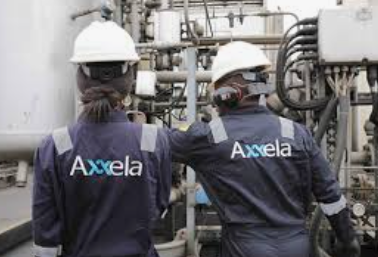The state-owned refineries in Port Harcourt, Warri, and Kaduna have become a significant financial burden on Nigeria, prompting urgent calls for their privatization. The Manufacturers Association of Nigeria (MAN), along with other industry experts, argues that these refineries are a drain on the national economy, consuming billions of dollars in rehabilitation efforts with no tangible returns. Despite numerous attempts and substantial financial injections, the refineries remain largely unproductive, failing to contribute meaningfully to the nation’s fuel supply. This economic hemorrhage necessitates a decisive shift in strategy, moving away from government management towards private sector involvement. The consensus is that privatization, either through outright sale or public-private partnerships, is the most viable solution to revitalize these crucial assets and ensure their efficient operation.
The financial toll of these underperforming refineries is staggering. Billions of dollars have been spent on turnaround maintenance (TAM) over the years, yet the refineries continue to operate far below capacity or are completely shut down. Recent figures reveal that approximately $3 billion has been allocated to the refineries’ rehabilitation in recent years, with no commensurate improvement in their output. This ongoing expenditure, coupled with the refineries’ operational costs, contributes significantly to the government’s financial burden. Experts argue that these funds could be better utilized by investing in functional modular refineries or other infrastructure projects that offer a more tangible return on investment. The continued financial drain of these refineries represents a missed opportunity for economic growth and development.
The ineffectiveness of government management is a central theme in the arguments for privatization. Critics point to a history of political interference, bureaucratic inefficiencies, and a perceived social role of the Nigerian National Petroleum Company Limited (NNPC) that hinders its ability to make sound business decisions. This includes difficulties in optimizing staff strength and managing costs, factors that private enterprises handle more effectively. The private sector, driven by profit motives and less susceptible to political pressures, is viewed as better equipped to manage the complexities of the refining industry and make the necessary investments for optimal performance. The success of the privately-owned Dangote refinery serves as a compelling example of the potential for efficient and profitable operation under private management.
Proponents of privatization offer various approaches to achieve this goal. The outright sale of the refineries is seen as the most straightforward option, allowing the government to recoup some of its investment and transfer the burden of rehabilitation to private entities with the expertise and capital to make them operational. Another proposed solution involves public-private partnerships (PPPs), where private investors bring their expertise and capital while the government retains a partial stake. This model could offer a balance between private sector efficiency and government oversight. Regardless of the specific approach, the overarching goal is to inject private sector dynamism and expertise into the management of these refineries to ensure their profitability and contribution to the national economy.
The calls for privatization are not new. Former Nigerian leaders, including President Olusegun Obasanjo, have long advocated for the sale of these underperforming assets. Obasanjo has recounted instances where international oil companies declined to manage the refineries due to their inherent challenges. He also highlighted the irony of the government continuing to invest in the failing refineries while simultaneously relying on the privately-owned Dangote refinery for fuel production. This underscores the widely held belief that private sector involvement is essential for the successful operation of these refineries. The continued reliance on government management despite its proven ineffectiveness is seen as a wasteful and unsustainable approach.
The ongoing investigation by the Economic and Financial Crimes Commission (EFCC) into billions of dollars spent on the refineries’ turnaround maintenance further strengthens the case for privatization. Allegations of corruption and mismanagement surrounding these funds underscore the lack of transparency and accountability that often plagues government-run enterprises. Private ownership, with its inherent focus on profitability and efficiency, is expected to foster greater transparency and reduce the opportunities for corruption. The EFCC probe serves as a reminder of the risks associated with government management and the potential benefits of transitioning to a more transparent, privately-managed system.














